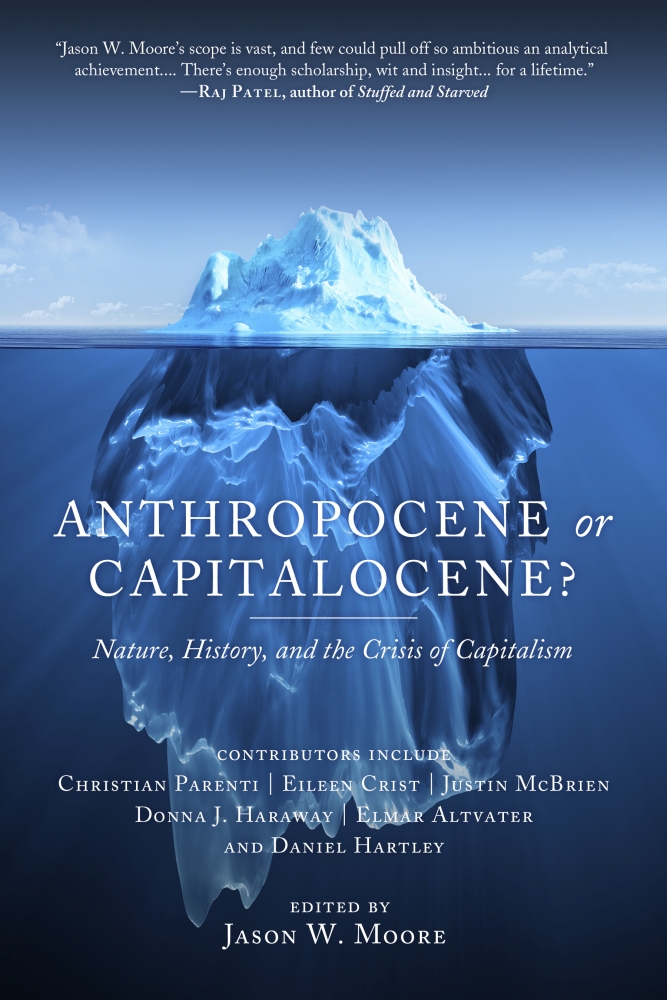Anthropocene or Capitalocene? Nature, History, and the Crisis of Capitalism
Formulated by Paul Crutzen and Eugene Stoermer in 2000, the Anthropocene concept proceeds from an eminently reasonable position: the biosphere and geological time has been fundamentally transformed by human activity. A new conceptualization of geological time—one that includes “mankind” as a “major geological force”—is necessary. This was a surely a courageous proposal. For to propose humanity as a geological agent is to transgress one of modernity’s fundamental intellectual boundaries. Scholars call this the “Two Cultures,” of the “natural” and “human” sciences (Snow 1957). At its best, the Anthropocene concept entwines human history and natural history—even if the “why” and the “how” remain unclear, and hotly debated.
Green Arithmetic. It is a curious term, but I can think none better to describe the basic procedure of environmental studies over the past few decades: Society plus Nature = History. Today it is Humanity, or Society, or Capitalism plus Nature = Catastrophe. I do not wish to disparage this model. It has been a powerful one. It has provided the philosophical basis for studies that have delivered a wealth of knowledge about environmental change. These studies, in turn, have allowed a deeper understanding of the what of the biosphere’s unfolding “state shift.” But they have not facilitated—indeed they have stymied—our understanding of how the present crisis will unfold in a world-system that is a world-ecology, joining power, nature, and accumulation in a dialectical and unstable unity.
The Capitalocene. As I think the contributions to this volume clarify, the Capitalocene does not stand for capitalism as an economic and social system. It is not a radical inflection of Green Arithmetic. Rather, the Capitalocene signifies capitalism as a way of organizing nature—as a multispecies, situated, capitalist world-ecology. I will try to use the word sparingly. There have been many other wordplays—Anthrobscene (Parikka 2014), econocene (Norgaard 2013), technocene (Hornborg 2015), misanthropocene (Patel 2013), and perhaps most delightfully, manthropocene (Raworth 2014). All are useful. But none captures the basic historical pattern modern of world history as the “Age of Capital”—and the era of capitalism as a world-ecology of power, capital, and nature.
